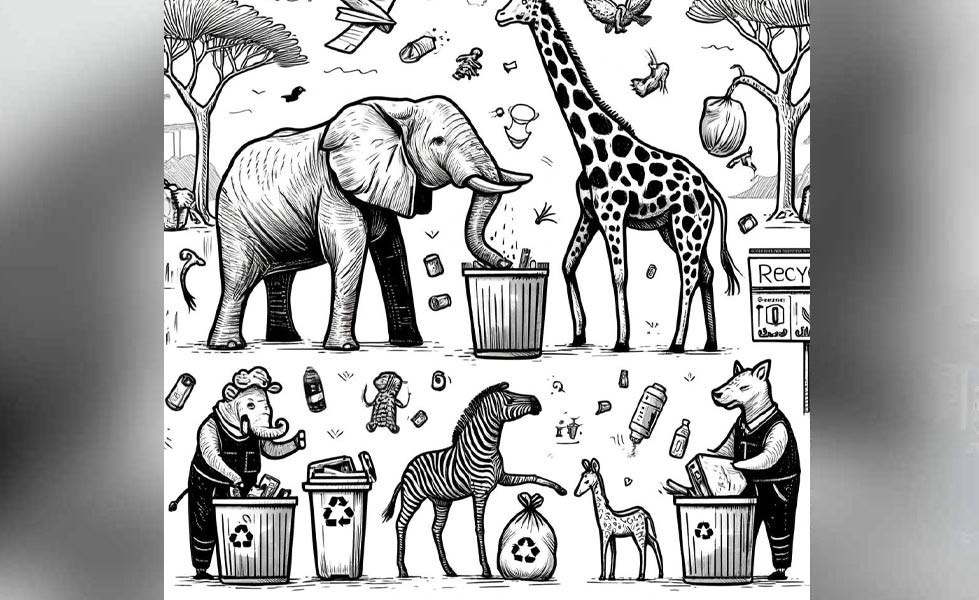In Kenya, effective waste management and recycling are not just environmental imperatives but are increasingly recognized as economic opportunities. As the country grapples with the challenges of waste, innovative and sustainable practices are emerging. This newsletter provides a comprehensive overview of waste management and recycling in Kenya, outlining its mechanisms, benefits, challenges, and the solutions being implemented to address these issues.
What Waste Management and Recycling Entail in Kenya
Waste management in Kenya involves a series of processes, including the collection, transportation, processing, and disposal of waste materials. Recycling, a core component of modern waste management, refers to the process of converting waste materials into new products to prevent waste of potentially useful materials. This reduces the consumption of fresh raw materials, energy usage, air pollution (from incineration), and water pollution (from landfilling).
Execution of Waste Management and Recycling
The waste management and recycling sector in Kenya is a tapestry of players and activities. Informal waste pickers play a crucial role, often being the first in the recycling chain by collecting and sorting waste, which is then sold to intermediary buyers or recycling plants. Formal entities, including non-governmental organizations and private companies, also participate, focusing on specific types of waste like plastics and electronic waste. For instance, initiatives like PETCO Kenya are pivotal in recycling PET plastics, promoting sustainability and environmental responsibility.
Legislative Framework
The Environmental Management and Coordination Act (EMCA) 1999 is the primary legal framework governing waste management in Kenya. EMCA establishes guidelines for waste handling and seeks to enforce environmentally sound waste management, including reduction, reuse, and recycling. Local county governments also have by-laws that manage waste collection and disposal in their respective areas, often collaborating with private companies for waste management services.
Key Players in the Sector
Waste management in Kenya is carried out by a variety of stakeholders, including the government, private sector, international donors, NGOs, and the informal sector. The government, through the National Environment Management Authority (NEMA), oversees regulation and compliance. Meanwhile, the informal sector, although not formally recognized, is integral, handling a significant portion of recyclable waste collection and processing.
Advantages of Efficient Waste Management and Recycling
The advantages of robust waste management and recycling practices in Kenya are manifold:
- Environmental Conservation: Recycling reduces the need for raw materials and minimizes waste accumulation, thereby conserving natural resources and reducing environmental degradation.
- Economic Benefits: The recycling industry creates jobs and contributes to economic growth. By turning waste into a resource, there is a direct economic gain from materials that would otherwise contribute to pollution.
- Reduction in Pollution: Proper waste handling reduces pollutants released into the environment, significantly lowering the impact on air, water, and soil.
Challenges in the Sector
Despite the advantages, the sector faces several challenges:
- Insufficient Infrastructure: Kenya lacks adequate recycling facilities and systems for effective waste collection and processing, particularly in rural and underserved urban areas.
- Low Public Awareness and Participation: There is a significant gap in public education on the importance of waste segregation and recycling practices.
- Dependence on Informal Sector: The heavy reliance on the informal sector for waste management poses issues related to health, safety, and stability of income for those employed within it.
Solutions to Enhance Waste Management and Recycling
Addressing these challenges requires a multifaceted approach:
- Investment in Infrastructure: Building more recycling facilities and improving waste collection infrastructure will help increase recycling rates.
- Enhancing Public Education and Engagement: Programs aimed at educating the public about the benefits of recycling and proper waste segregation can increase citizen participation.
- Formalization of the Informal Sector: By integrating informal workers into the formal economy, they can gain better job security and health benefits, while also improving the efficiency of recycling processes.
Conclusion
As Kenya continues to urbanize at a rapid rate, the demand for efficient waste management and recycling systems becomes increasingly urgent. The collaboration between the government, private sector, and community initiatives is essential to fostering a culture of recycling. By embracing and enhancing recycling practices, Kenya can protect its natural beauty, improve public health, and create economic opportunities. The future of waste management in Kenya looks promising with continued effort and investment, aiming for a cleaner, more sustainable environment for all its citizens.
This comprehensive approach to waste management and recycling not only addresses immediate environmental concerns but also builds a foundation for sustainable growth and development in Kenya.Top of Form
Disclaimer:
Please note that the information provided in this article is for general informational purposes only and should not be construed as legal advice. It is always advisable to consult with a qualified legal professional to discuss your specific circumstances and obtain tailored legal counsel.





